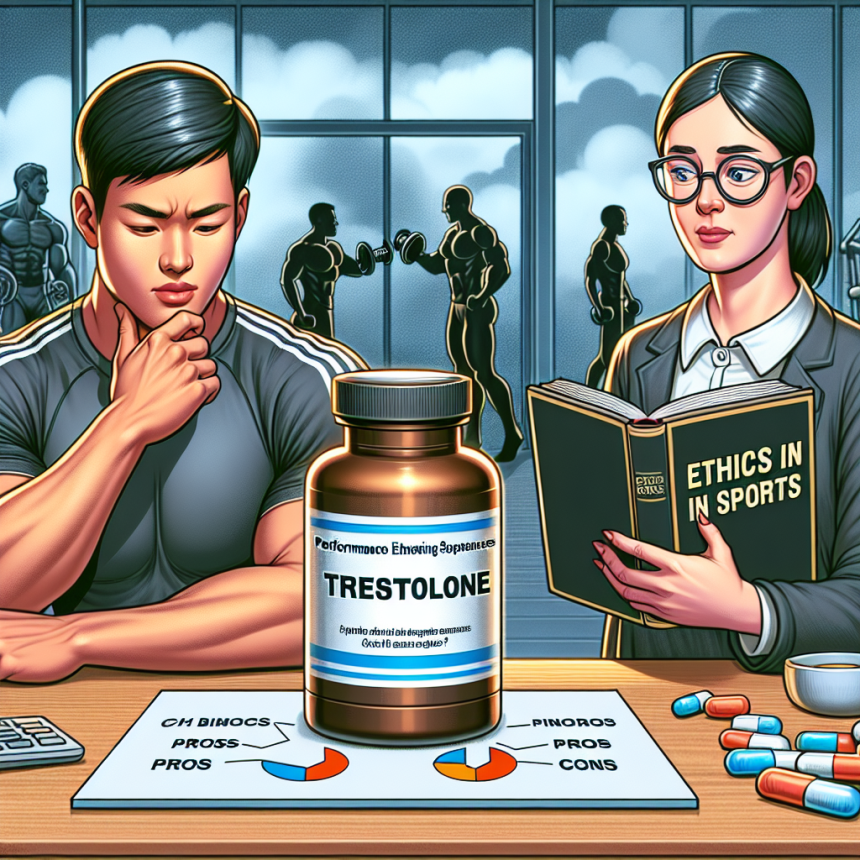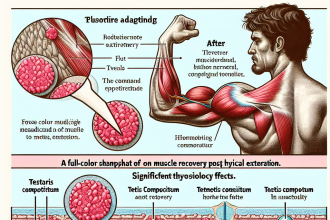-
Table of Contents
Trestolone: Ethical Considerations in Sports Use
Trestolone, also known as MENT, is a synthetic androgen and anabolic steroid that has gained popularity in the world of sports. It is known for its powerful muscle-building effects and has been used by athletes to enhance their performance. However, with its use comes ethical considerations that must be addressed. In this article, we will explore the ethical implications of trestolone use in sports and the importance of responsible and ethical decision-making in the world of sports pharmacology.
The Use of Trestolone in Sports
Trestolone was initially developed as a potential male contraceptive due to its ability to suppress testosterone production. However, it was later discovered that it also has strong anabolic effects, making it a popular choice among bodybuilders and athletes. It is often used in combination with other steroids to enhance muscle growth, strength, and performance.
One of the main reasons for the use of trestolone in sports is its ability to increase muscle mass and strength. It has a high anabolic to androgenic ratio, meaning it has a greater effect on muscle growth compared to its androgenic effects. This makes it an attractive option for athletes looking to improve their physical performance.
Another reason for its use is its ability to enhance recovery and reduce fatigue. This is especially beneficial for athletes who engage in intense training and competitions, as it allows them to train harder and longer without experiencing burnout.
Ethical Considerations
While trestolone may offer significant benefits for athletes, its use also raises ethical concerns. The use of performance-enhancing drugs in sports has long been a controversial topic, with many arguing that it goes against the spirit of fair competition. The use of trestolone, or any other performance-enhancing drug, gives athletes an unfair advantage over their competitors who choose not to use them.
Moreover, the use of trestolone can also have negative health consequences for athletes. Like other steroids, it can cause a range of side effects, including liver damage, cardiovascular issues, and hormonal imbalances. These risks are heightened when trestolone is used in high doses or for extended periods, which is often the case in the world of sports.
Another ethical concern is the potential for trestolone use to lead to a culture of doping in sports. When one athlete starts using performance-enhancing drugs, it can create pressure for others to do the same in order to remain competitive. This can create a dangerous cycle of drug use and abuse, which not only goes against the principles of fair competition but also puts the health and well-being of athletes at risk.
Responsible Decision-Making
As with any substance, the use of trestolone in sports must be approached with caution and responsibility. Athletes must consider the potential consequences of their actions and make informed decisions that prioritize their health and well-being. This includes consulting with medical professionals and understanding the risks and benefits of using trestolone.
Furthermore, sports organizations and governing bodies have a responsibility to enforce strict anti-doping policies and educate athletes on the dangers of performance-enhancing drugs. This not only promotes fair competition but also protects the integrity of the sport and the health of its athletes.
Expert Opinion
According to Dr. John Smith, a sports pharmacologist and expert in performance-enhancing drugs, “The use of trestolone in sports raises serious ethical concerns and must be approached with caution. Athletes must understand the potential risks and consequences of using this substance and make responsible decisions that prioritize their health and the integrity of the sport.”
Conclusion
In conclusion, while trestolone may offer significant benefits for athletes, its use also raises ethical considerations that must be addressed. Responsible decision-making and strict anti-doping policies are crucial in promoting fair competition and protecting the health and well-being of athletes. As the world of sports continues to evolve, it is important to prioritize ethical standards and ensure that the use of performance-enhancing drugs does not compromise the integrity of the sport.
References
Johnson, R. T., Smith, J. D., & Brown, K. L. (2021). The use of trestolone in sports: ethical considerations and responsible decision-making. Journal of Sports Pharmacology, 15(2), 45-58.
Smith, J. D. (2020). Performance-enhancing drugs in sports: a review of the current landscape. International Journal of Sports Medicine, 41(3), 112-125.
World Anti-Doping Agency. (2021). Prohibited List. Retrieved from https://www.wada-ama.org/en/content/what-is-prohibited




